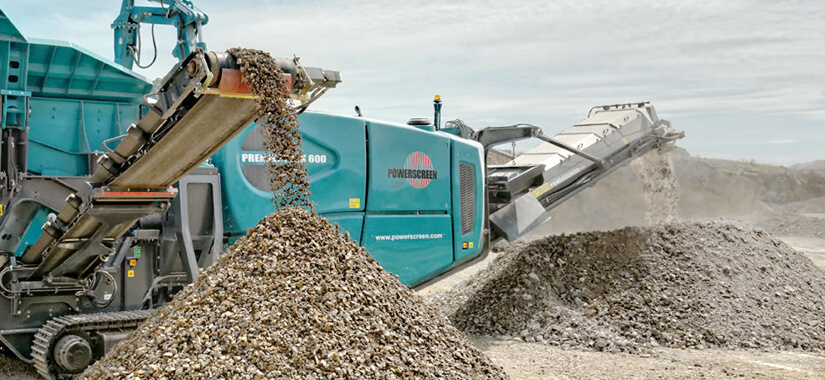
Crushing limestone in the cement industry refers to the crucial process of processing raw materials to produce the material used in cement production. Limestone, one of the primary ingredients in cement manufacturing, is crushed using various types of equipment such as crushers and hammer mills to achieve the desired size.
This process aims to transform large limestone rocks into smaller, more uniform particles, which are then used in various stages of cement production such as grinding and mixing with other materials like clay and sand.
Here are the problems and solutions from Eonchemicals:
1. Problem: High-Temperature Grease
The issue of high-temperature grease in limestone crushing within the cement industry involves the challenge of using lubricants that can withstand the high temperatures generated by equipment like crushers and hammer mills.
In this process, high temperatures can cause the grease to become more liquid or flow, reducing its ability to lubricate effectively. This condition can lead to increased friction and wear on critical components such as bearings and gears, which in turn can reduce equipment lifespan and increase the risk of machine failure.
Solution: Molykote / Dow / LE
Molykote, Dow, and Lubrication Engineers (LE) offer effective solutions for the high-temperature grease issue in limestone crushing within the cement industry as they are specialty greases designed to handle high temperatures optimally.
These products contain additives such as molybdenum disulfide (MoS2) or other binders that enhance the grease’s resistance to extreme temperatures, maintaining viscosity and lubrication stability during intensive operations. Greases from Molykote, Dow, and LE are also designed to reduce friction and wear on heavy-duty components like bearings and gears, providing additional protection against corrosion and oxidation.
2. Problem: Motor Cleaner for Gear Box
The issue of motor cleaning for gearboxes in limestone crushing within the cement industry involves the challenge of maintaining cleanliness and optimal performance of gearboxes used in the limestone crushing process. Dust and particles from limestone exposure can accumulate around the gearbox, disrupting internal components such as bearings, gears, and seals.
Solution: EonMotor 100
EonMotor 100 is an effective solution for cleaning motors on gearboxes in limestone crushing within the cement industry because it is specifically designed to clean and protect machine components from harsh environmental conditions.
Its formula contains a special blend of solvents designed to clean electric motors and dynamos from oil and grease dirt. This product is highly effective in removing contaminants, ensuring components remain clean and function optimally.
Please contact us for more information.
3. Problem: Dust
The issue of dust in limestone crushing within the cement industry involves the accumulation of dust particles from the limestone crushing process that can spread widely around the work area. This dust not only disrupts visibility and work comfort but also has the potential to contaminate the surrounding air, affecting worker health and the surrounding environment.
Solution: DustDown 369 dan DFS
DustDown 369 and DFS are effective solutions for the dust issue in limestone crushing within the cement industry because they are designed to control and reduce dust efficiently. DustDown 369 is a dust suppressant product that binds dust particles and prevents them from becoming airborne again, thus reducing air pollution around the work area.
Additionally, DFS (Dust Filtration Solution) is an air filtration system that can remove dust from the air before it reaches the surrounding environment, ensuring that the air released is clean and safe for breathing.
4. Problem: Auto Lubrication Handling
The issue of auto lubrication handling in limestone crushing within the cement industry involves the challenge of maintaining the automatic lubrication system to remain effective and consistent in reducing friction and preventing wear on machine components involved in the limestone crushing process.
Problems that arise include lubrication system failures due to dust and limestone particle contamination, lack of timely maintenance, or the use of lubricants that are not suitable for operational conditions.
Solution: EonMultilube (Autolubricator)
EonMultilube (Autolubricator) is an effective solution for the auto lubrication handling issue in limestone crushing within the cement industry because this system is specifically designed to provide accurate and consistent automatic lubrication to various machine components and heavy equipment.
With the ability to automatically provide the right amount of lubricant at the right time, EonMultilube helps reduce excessive friction and wear on critical components such as bearings, bushings, and other important parts.
This product also features lubricants that offer protection against dust and other particle contamination, ensuring the reliability of the lubrication system in harsh environments like limestone quarrying.
5. Problem: Slippery and Damaged Floors
The issue of slippery and damaged floors in the limestone crushing area within the cement industry involves significant safety risks for workers and equipment users. In environments frequently exposed to water, oil, or other chemicals, slippery floors can cause serious accidents such as slips or falls, leading to injuries and unwanted downtime.
Additionally, heavy activities such as heavy equipment operations and material handling can cause wear and damage to the floors.
Solution: EonCoat 551 / EonCoat 470
EonCoat 551 and EonCoat 470 are effective solutions for the slippery and damaged floor issue in the limestone crushing area within the cement industry because they are protective coatings specifically designed to enhance safety and extend the floor’s lifespan.
These products offer long-lasting protection against abrasion, chemicals, and heavy pressure from equipment and materials moving over them. By applying EonCoat 551 or EonCoat 470, the floor surface can be made rougher to prevent slipping and reduce the risk of slips and falls
| Read cement packing process and solutions
6. Problem: Grease Quality
The issue of grease quality in limestone crushing within the cement industry involves the challenge of selecting and using grease that is suitable for harsh and heavy operational conditions. Grease that does not meet specifications or is not compatible with the temperature, pressure, or wear conditions can result in ineffective lubrication.
This can lead to increased friction, excessive wear on critical components such as bearings and gears, and potential equipment damage. Additionally, poor-quality grease can affect the operational stability of machines and equipment, increasing maintenance costs and the risk of downtime in the limestone crushing process.
Solution: Molykote / Dow / LE
Molykote, Dow, and Lubrication Engineers (LE) offer effective solutions for the high-temperature grease issue in limestone crushing within the cement industry because they are specialty greases designed to handle high temperatures optimally.
These products contain additives such as molybdenum disulfide (MoS2) or other binders that enhance the grease’s resistance to extreme temperatures, maintaining viscosity and lubrication stability during intensive operations. Greases from Molykote, Dow, and LE are also designed to reduce friction and wear on heavy-duty components like bearings and gears, providing additional protection against corrosion and oxidation.
| Read also about Bestolife Lubricant – other types of superior lubricants on this site
Please discuss about your limestone crusher machine problem with chat WhatsApp to get the solution
Consult with EON Now
We are ready to listen and provide the right chemical solution for you. Consultation with our experts is free!

 Home
Home